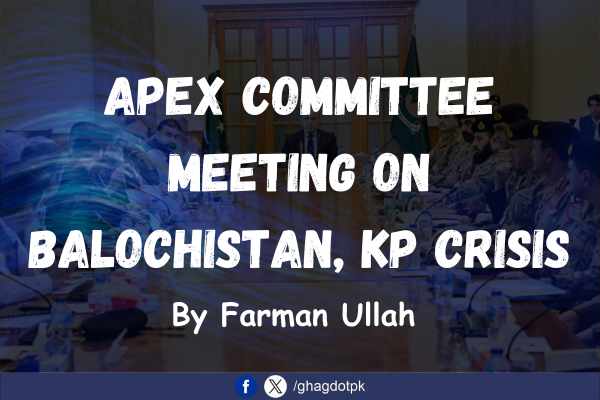By Farman Ullah
Balochistan, similar to Khyber Pakhtunkhwa, has been plagued by years of turmoil and instability. The strategic location of these two provinces has made them a hub for internal and external forces, as well as anti-state elements, to wage war and perpetuate terrorism. Balochistan has seen rising tensions since 2005, with both separatists and extremist groups like TTP and Jundallah active. Recently, coordinated attacks in 10 areas killed 50 civilians, including 14 security personnel, and destroyed 25 vehicles. Security forces killed 22 terrorists and are conducting ongoing operations. The Baloch Liberation Army claimed responsibility and called for war against the state, similar to TTP. The attacks have sparked concern and raised questions about the security situation. To discuss Current unrest in the region, Pakistan’s top leaders, including the Prime Minister, Army Chief, and key ministers, met in Quetta to address the recent surge in terrorism in Balochistan. They unanimously agreed to take a hardline stance against terrorists and anti-state elements, ruling out negotiations and concessions. The meeting resulted in immediate orders to tackle the province’s administrative challenges. The newly appointed IG Police Balochistan, Moazzam Jah Ansari who has previously served as IG Khyber Pakhtunkhwa and IG Balochistan, has a strong background in counter-terrorism, and also joined the meeting, raising hopes for effective action against terrorism.
Reports emerged that security forces had ramped up their presence in Balochistan, launching operations under a new strategy. Meanwhile, Indian media openly linked the situation to Pakistan-China cooperation, labeling it a Baloch resistance movement and even acknowledging India’s involvement. However, Pakistan lacked a unified narrative to address these critical issues. In Khyber Pakhtunkhwa, around nine terrorist incidents occurred in recent days, but the provincial government showed little concern. In a shocking incident, a Lieutenant Colonel was abducted by the Taliban in Dera Ismail Khan, along with his relatives, while attending a funeral prayer. The provincial government’s apathy was evident, and the Islamabad-based provincial cabinet meeting failed to address the law and order situation or take concrete actions. This lack of response not only disillusioned the public but also sparked calls for the Governor’s rule due to the government’s poor performance and security failures.






